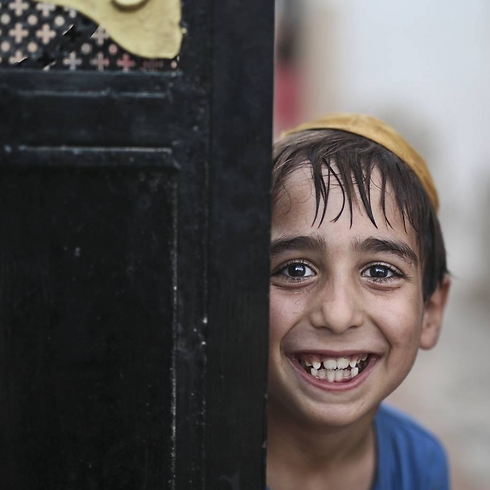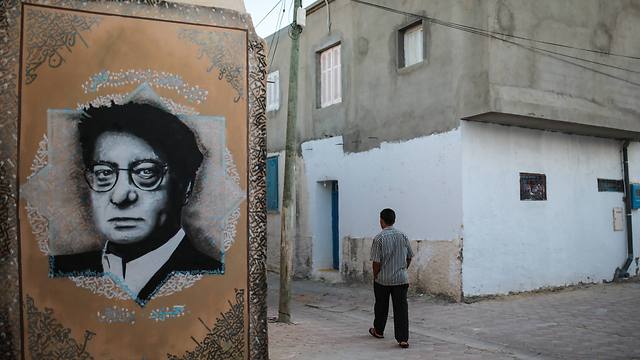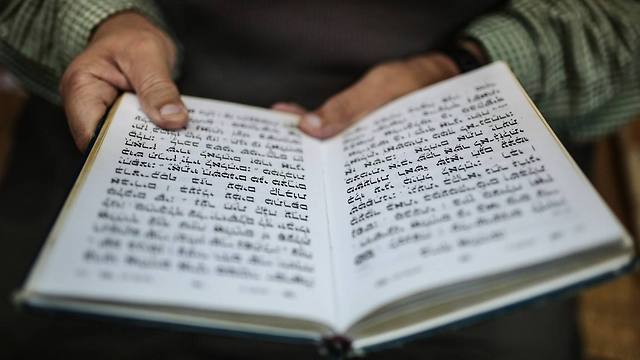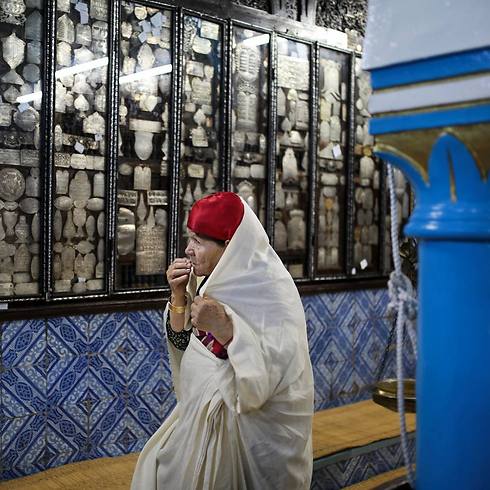Lauren Williams, Gaziantep
Exclusive: Having survived more than four years of civil war in Syria by keeping their faith secret, the Halabis escape with help of smugglers

Mariam Halabi with her daughter Gilda, right, her husband Khalid, and an escort from the FSA, far left
It took a knock on the door in the dead of night and a hair-raising journey through territory held by al-Qaeda militants to end 3,000 years of Jewish history in northern Syria.
The last Jewish family in the city of Aleppo was taken across the border to safety in Turkey last month with the help of an Israeli-American businessman and moderate rebels with the Free Syrian Army.
Mariam Halabi, 88, and her two daughters, Gilda and Sarah, both in their fifties, had survived more than four years of civil war in Syria, leading a secretive life while their city was fought over by the regime of Bashar al-Assad and Islamist rebels.
The family had stayed in their home, despite water and electricity becoming scarce, practising their Judaism even when kosher food became unavailable.
But for Mariam’s son Yoni, who lives in New York, worrying over his family’s safety became intolerable and eventually he contacted a rabbi in New York he had been told might be able to help.
The rabbi had heard of humanitarian work being carried out by Moti Kahana, a Jewish businessman, in support of the Syrian rebels. After talking to his contacts in Syria, Mr Kahana hatched a plan to extract the family.
Late on October 13, a Syrian sent by Mr Kahana knocked on the Halabis’ door. He told them he was sent by Yoni and that it was “time to go”.
Wearing headscarves to disguise themselves as Muslims, the family, including Gilda’s Syrian Muslim husband, Khalid, and his three teenage children from a former marriage, took what they could carry and were bundled into a minibus heading for the Turkish border.

Residents walk amidst rubble at a site allegedly hit by a barrel bomb in Aleppo
The 12-hour journey took the family through multiple Islamist rebel checkpoints. At one point, Mr Kahana said, the family had to negotiate their way through a checkpoint manned by the al-Qaeda affiliate, Jabhat al-Nusra.
Once inside Turkey, the family took refuge in the home of a Palestinian Syrian woman, who offered them a safe haven for a night before they could continue to Istanbul.
Selma, 43, herself a refugee from the Assad regime, and fearful of reprisals for helping the family, said they were shaken and emotional when they arrived in Antakya in southern Turkey.
“They were scared and distressed. The woman is very old and sick,’” Selma said. “But they were very grateful. They were happy to leave, but afraid.
“It doesn’t matter to me that they are Jewish and I am Palestinian – I will help. We are all family.”
The family had hoped to be reunited with Yoni in New York but despite the Halabis having fled to safety, their story does not have a wholly happy ending.
When they arrived in Istanbul, Mr Kahana told them that visas to America would be hard to secure and that it would be easier to apply for a right of return visa to Israel – known as Aliyah – to begin with.

Mariam Halabi in a clinic in Istanbul with Moti Kahana, who arranged her evacuation
Read more: Last Jewish family…
 Ancient Jewish community endures on Tunisian isle
Ancient Jewish community endures on Tunisian isle Here the faithful pray at the La Ghriba synagogue – widely believed to be Africa’s oldest – beneath intricate tile walls bearing blue and yellow geometric shapes that would not seem out of place at a mosque. The synagogue’s name can be translated as “strange” or “miraculous.”
Here the faithful pray at the La Ghriba synagogue – widely believed to be Africa’s oldest – beneath intricate tile walls bearing blue and yellow geometric shapes that would not seem out of place at a mosque. The synagogue’s name can be translated as “strange” or “miraculous.”




 Krystyna Asarnoj
Krystyna Asarnoj





